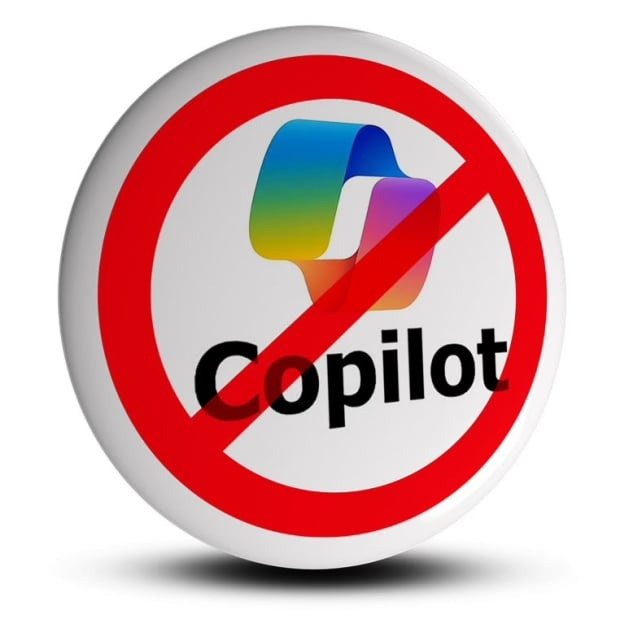Product AI Agent's Weekly Briefing
A weekly edition, where I dive into the latest developments sharing Generative AI and Agentic based digital products.
Hello there! Welcome to this week's briefing!
In the past week, there have been more talks about user-centred design. We've also been discussing AI in automotive HMI systems and plans for agentic AI with our clients.
These themes show that people are recognising the need for agent-based systems at an enterprise level. They also emphasise the importance of aligning AI capabilities with human values.
Let’s explore the key developments that are shaping our industry.
COMING END JULY 2025!
If you want to ‘Master Agentic AI product and design’ before your competition…..
……enjoy a 50% discount on the ‘No Spoon Survival Guide’.
⏰ This Week’s Digest (TL;DR) ⏰
1️⃣ A masterclass to build AI experiences that suit user needs. – Read on
2️⃣ Automotive industry is increasingly using AI-driven HMI systems. – Read on
3️⃣ A new guide for how to use agentic AI to gain a competitive edge – Read on
4️⃣ Insights from PMs on scope creep, messy AI, and practical prototyping.
5️⃣ Recent studies show that key HCD principles improve UX. – Read on
Estimated reading time: 8 minutes.
👀 What Caught My Eye in AI This Week 👀
EchoLeak: The AI memory heist
A serious vulnerability appeared this week. Every AI product leader should take notice.
EchoLeak is an exploit that targets retrieval-augmented generation (RAG) systems. This includes tools like Microsoft Copilot and new Model Context Protocol (MCP) agents.
The hack?
Agents can take sensitive memory content without drawing attention. They can do this without user input. It employs context sharing to change a feature into a tool for spotting hidden leaks.
🔍 What’s going wrong?
The flaw lies in the way MCP systems manage memory state and identity. Memory can shift between tools without tight controls. This allows malicious actors to exploit the context. They can do this using prompt injection or by using rogue tools within the chain.
This is happening just as MCP is becoming a standard for agent memory.
🧠 Why this matters to Product Managers
Creating workflow agents, such as sales representatives or onboarding assistants, involves striking a balance between value and risk. They must rely on shared memory.
Think of memory like a shared brain. EchoLeak proved it’s hackable.
PMs need to take this seriously, as they manage HR data, customer records, or sensitive decisions.
🔐 EchoLeak’s Takeaways
Memory ≠ Cache: Treat agent memory with the same security and audit controls as user credentials or transaction logs.
Context ≠ Consent: Just because an agent has context doesn’t mean it should share it. Build granular controls (guardrails) into the context of when, where, and how it travels.
Agent Identity is a Blind Spot: In many MCP implementations, agents don’t sign their actions. This breaks observability and weakens audit trails.
📦 Lessons from Real AI Product builds 📦
What I’ve observed on the front line in the last week
Pressure is building as AI-first teams are expected to move quickly. PMs see AI-native teams launching faster and setting new standards. This raises concerns that traditional product methods may lag if they don’t adapt.
🤖 What scares PMs
PMs feel burnt out when pushed into “AI expert” roles too soon. They are expected to lead AI projects from start to finish. This encompasses strategy, technical design, and execution simultaneously.
“An AI PM is not like a regular PM. The difference? They need to be fluent in machine learning. But deep down, they hope no one asks them to explain the model construct.”
🧰 What PMs are looking for
Tools that improve PMs, not complicate things. There's rising interest in tools like Cursor, Codegen, and GPT prototypes. These tools help speed up ideation, backlog creation, and prototyping in everyday workflows.
"Using LLMs to create quick prototypes with less detail is an exciting idea. It can lead to explaining better customer experiences.”
🎯 What PMs want to know
These themes continually emerge in conversations:
What does a successful AI rollout look like? Clear before-and-after metrics—save hours, reduce bugs, and achieve faster launches.
What's the architecture behind agentic systems? How do prompts, memory, the API layer, and tool orchestration fit together?
How do I speak confidently with execs? PMs seek frameworks and language that show AI as a strategic asset. For example, they might say, “We reduced time-to-market by 30%,” not just hype.
Where do I learn this stuff? They’re hungry for structured, role-specific upskilling, not generic AI 101. They need courses or guides to lead pilots and evaluate vendors.
⚛️ Key Trends of the Last 7 Days ⚛️
1. User-Centred AI Design
The upcoming masterclass on user-centred AI design highlights the need for easy-to-use AI systems. These systems aim to improve clinical workflows. This approach is key for building trust and usability in healthcare apps. It ensures that AI tools truly benefit both healthcare professionals and patients.
2. Advancements in Automotive HMI
The automotive industry is witnessing a significant shift towards AI-integrated Human-Machine Interfaces (HMIs). These systems aim to boost driver interaction and safety. They eliminate distractions and enhance the overall driving experience. As cars become increasingly connected, AI in HMI systems will transform the way drivers interact with their vehicles.
3. Strategic Frameworks for Agentic AI
A new playbook is out. It details strategies for using agentic AI in organisations. This framework illustrates why aligning AI projects with business goals and ethical standards is crucial. It ensures that AI acts as a tool for innovation, not just automation.
4. Human-Centred Design Research
New research highlights the importance of human-centred design in making great user experiences. By focusing on what users need and how they behave, organisations can create AI systems that connect on an emotional level. This approach leads to greater user satisfaction and engagement.
🛠️ Top Tools of the Last 7 Days 🛠️
1. ChatGPT 5
A major upgrade is on the horizon. ChatGPT-5 is expected to launch in mid-2025, bringing even more advanced reasoning, memory, and interactivity. OpenAI aims to create a “super smart personal assistant” that understands context deeply, retains memory across sessions, and supports the execution of complex tasks, raising the bar for both enterprise and everyday use cases.
2. Stability AI & Arm
Stability AI and Arm just released Stable Audio Open Small, a lightweight model designed for on-device audio generation. This unlocks real-world deployment in industries such as automotive, consumer technology, and healthcare, enabling voice control and audio synthesis without relying on the cloud. It’s a big step toward faster, privacy-friendly AI integration at the edge.
3. Google Bard
Google Bard has just received a significant upgrade. With deeper integration into Google apps like Gmail, Docs, and Drive, it now acts more like an intelligent assistant than a chatbot. Users can ask Bard to summarise emails, draft content, or analyse documents directly inside their workflow. It’s shaping up to be a powerful productivity layer for everyday business tasks.
🔬Academic and Research Papers of the Last 7 Days 🔬
1. Human-Centred Design Principles
This paper examines how human-centred design facilitates the creation of meaningful user experiences. Empathy and iterative design are key for building effective AI systems.
2. AI in Automotive HMI
A detailed study on how AI improves human-machine interfaces in the automotive industry. The findings suggest that well-designed HMIs can significantly improve driver safety and satisfaction.
3. Agentic AI frameworks
This research presents strategies for using agentic AI in organisations. It highlights ethical issues and guides in aligning AI with business goals.
4. User-Centred AI Design in Healthcare
A paper on user-centred design in AI applications. It highlights the importance of creating intuitive and trustworthy systems for healthcare.
5. Generative AI in Education
This paper examines the impact of generative AI tools on instructional design and course development. It highlights their ability to improve educational outcomes.
📅 Upcoming Events 📅
1. Momentum AI San Jose – Jul 15–16, 2025
A fast-growing AI event focused on applying AI in business operations and product delivery. An excellent platform for learning about practical use-cases and networking with field leaders.
2. AI for Good Global Summit – Jul 8–11, 2025 (Geneva, Switzerland)
Run by ITU/UN, this summit explores the application of AI in addressing global challenges—from healthcare to environmental sustainability. Ideal for leaders interested in ethical and impact-oriented AI.
3. Snapdragon Auto Day India – Jul 30, 2025 (New Delhi)
Qualcomm and AWS will unveil AI-driven in-car experiences, including V2X, ADAS, and cloud-integrated mobility, which are essential for anyone building embedded, autonomous systems in the automotive industry.
That’s it for this week.
If you want to stay up to date with my weekly digest, be sure to click the subscribe button.
See you next week.






